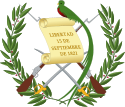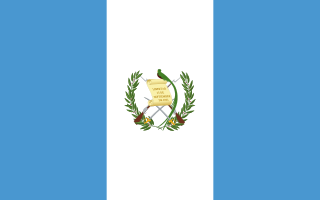
The Socialist Party of Chile is a political party within the centre-left Nueva Mayoría. Its historic leader was President of Chile Salvador Allende, who was deposed in a coup d'état by General Pinochet in 1973. Twenty-seven years later, Ricardo Lagos Escobar represented the Socialist Party in the 1999 presidential elections. He won 48.0% in the first round of voting and was elected with 51.3% in the second round. In the legislative elections on 16 December 2001, as part of the Coalition of Parties for Democracy, the party won 10 out of 117 seats in the Chamber of Deputies and 5 out of 38 elected seats in the Senate. After the 2005 elections, the Party increased its seats to 15 and 8, respectively. In the 2009 elections, it retained 11 Congressional and 5 Senate seats.
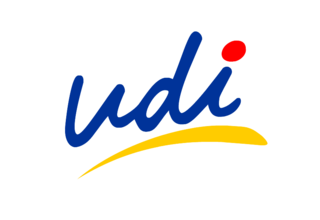
The Independent Democratic Union is a Chilean right-wing, conservative political party, founded in 1983. Its founder was the lawyer, politician and law professor Jaime Guzmán, a civilian who collaborated with Augusto Pinochet and a member of the Opus Dei. Guzmán was a senator from 1990 until his assassination on April 1, 1991.

National Renewal is a liberal conservative political party belonging to the Chilean centre-right political coalition called Chile Vamos in conjunction with the Independent Democratic Union (UDI), the Independent Regionalist Party (PRI) and Political Evolution (Evópoli). The party president is the deputy Mario Desbordes, and its principal leaders are Sebastián Piñera, current President of Chile and Andrés Allamand, former minister of defense, former presidential candidate and Senator.

A general election was held in Guatemala in two rounds on 9 September and 4 November 2007. Voters went to the polls to elect a new President and Vice President of the Republic, 158 congressional deputies, and 332 mayors.
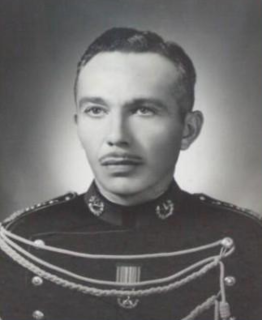
General elections were held in Guatemala on 3 March 1974. No candidate received more than 50% of the vote in the presidential election, resulting in Kjell Eugenio Laugerud García being elected president by Congress on 12 March. The Congressional elections were won by an alliance of the Institutional Democratic Party and the National Liberation Movement. Voter turnout was 46.41% in the presidential election.

General elections were held in Guatemala on 6 March 1966. After no candidate received 50% or more of the national vote, Julio César Méndez Montenegro was elected President by Congress on 10 May. On the Congressional elections, the Revolutionary Party won 28 of the 54 seats. Voter turnout was 56.27% in the presidential election and 55.01% in the Congressional elections

General elections were held in Guatemala on 1 March 1970. No candidate received over 50% of the vote in the presidential election, resulting in Carlos Manuel Arana Osorio being elected by Congress on 21 March. The National Liberation Movement-Institutional Democratic Party alliance won the Congressional elections. Voter turnout was 53.82% in the presidential election and 53.26% in the Congressional elections.

General elections were held in Guatemala on 5 March 1978. No candidate received more than 50% of the vote in the presidential election, resulting in Fernando Romeo Lucas García being elected president by Congress on 13 March. The Congressional elections were won by the National Liberation Movement.

General elections were held in Guatemala on 3 November 1985, with a second round of the presidential elections taking place on 8 December. The presidential election resulted in a victory for Vinicio Cerezo, who had received $650,000 towards his campaign from media owner Remigio Ángel González. The Congressional elections resulted in a victory for Cerezo's Guatemalan Christian Democracy, which won 51 of the 100 seats. Voter turnout was 69.3%.

General elections were held in Guatemala on 12 November 1995, with a second round of the presidential elections held on 7 January 1996. Álvaro Arzú of the National Advancement Party won the presidential election, whilst his party also won the Congressional elections. Voter turnout was 46.8% on 12 November and 36.9% on 7 January.

General elections were held in Guatemala on 19 January 1958 after the 1957 elections were nullified. After no candidate received 50% or more of the national vote, Miguel Ydígoras Fuentes was elected President by Congress on 12 February, whilst an alliance of the National Democratic Reconciliation Party, Nationalist Democratic Party, the Nationalist Liberal Party, the Democratic National Association and the National Anti-Communist Front won 40 of the 66 seats in Congress.
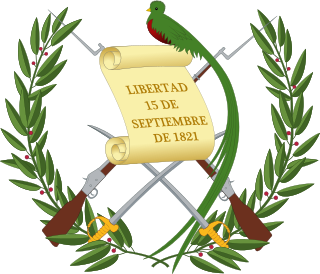
Parliamentary elections were held in Guatemala on 3 December 1961, in order to elect half the seats in Congress. Following the election, the National Democratic Reconciliation Party-National Democratic Movement-Democratic Unity Party alliance held 50 of the 66 seats. Voter turnout was just 44.48%.
Legislative elections were held in Guatemala to elect members of the Congress on 3–5 November 1944.
A presidential election was held in Guatemala on 17–19 December 1944. The October Revolution of 1944 had overthrown Jorge Ubico, the U.S. backed dictator of Guatemala. A junta composed of Francisco Javier Arana, Jacobo Árbenz and Jorge Toriello took power, and quickly announced presidential elections, as well as elections for a constituent assembly. The subsequent elections took place in December 1944, and were broadly considered free and fair, although only literate men were given the vote. Unlike in similar historical situations, none of the junta members stood for election. The front-runner was the philosophically conservative University professor Juan José Arévalo, of the Renovación Nacional. Arévalo's closest challenger was Adrián Recinos, whose campaign included a number of individuals identified with the Ubico regime. The ballots were tallied on 19 December 1944, and Arévalo won in a landslide, receiving more than four times as many ballots as the other candidates combined.
The Renewal Party was a Panamanian right liberal political party.

The Anti-Communist Unification Party was a right-wing political party in Guatemala.
